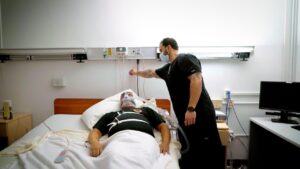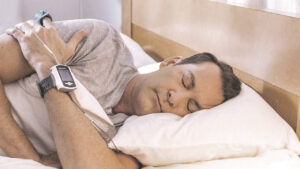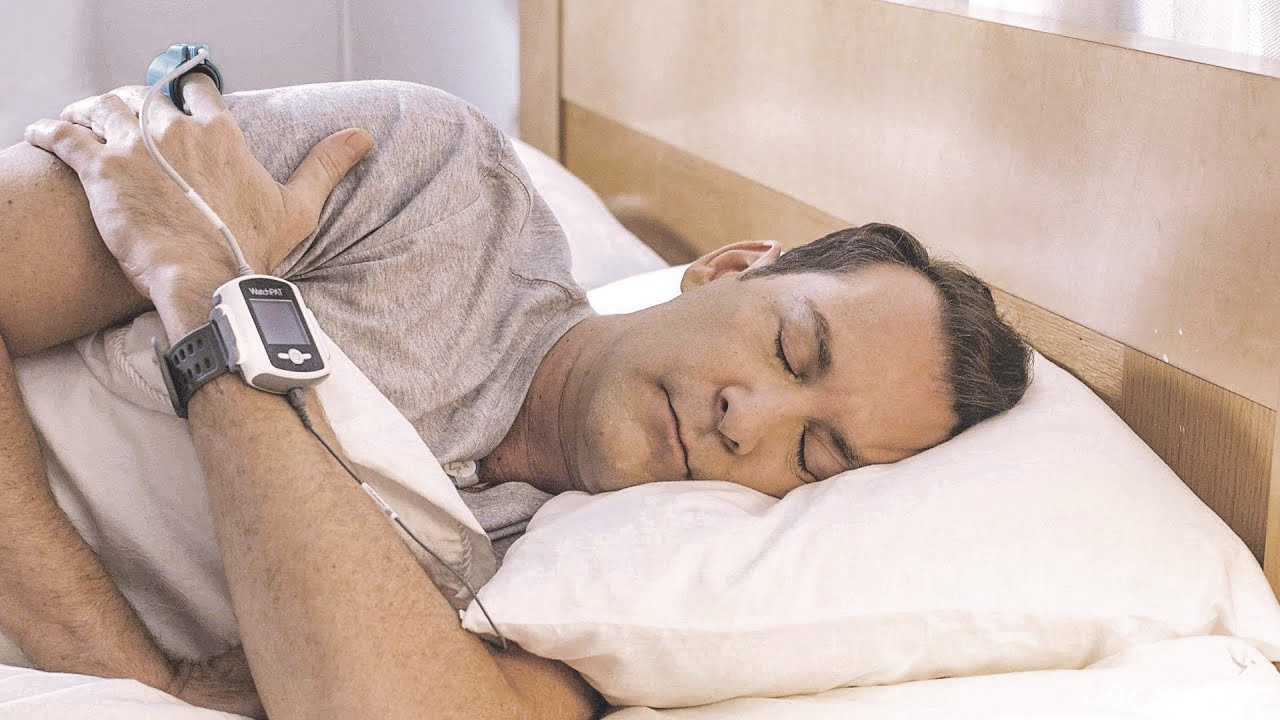
Sleep apnea is a common sleep disorder that affects millions of people worldwide. It is characterized by pauses in breathing during sleep, which can lead to fragmented sleep and other health complications if left untreated. If you suspect that you or a loved one may have sleep apnea, it is important to understand the cost associated with getting a sleep apnea test.
In this article, we will explore the factors that determine the cost of sleep apnea test and discuss affordable options for those in need.
What is Sleep Apnea?
Sleep apnea is a disorder characterized by pauses in breathing or shallow breaths during sleep. These pauses can last from a few seconds to minutes and can occur multiple times throughout the night. The most common type of sleep apnea is obstructive sleep apnea, which occurs when the muscles in the back of the throat fail to keep the airway open during sleep. Central sleep apnea and complex sleep apnea syndrome are less common types that involve problems with the brain’s signaling to the muscles that control breathing.
Obstructive sleep apnea is often associated with risk factors such as obesity, a narrow airway, smoking, alcohol use, and nasal congestion. The condition is more prevalent in males and individuals over the age of 40, although it can affect people of all ages, including children. Diagnosis of sleep apnea typically involves a sleep study conducted in a specialized sleep center, where various parameters are monitored during sleep to determine the presence and severity of the condition. You can get about CPAP masks for bearded people by clicking here.
Symptoms and Risks of Sleep Apnea
Common symptoms of sleep apnea include loud snoring, gasping or choking sounds during sleep, morning headaches, excessive daytime sleepiness, difficulty concentrating, and irritability. Left untreated, sleep apnea can lead to serious health risks such as high blood pressure, heart disease, stroke, type 2 diabetes, and depression.
Types of Sleep Apnea
As mentioned earlier, there are three main types of sleep apnea: obstructive sleep apnea, central sleep apnea, and complex sleep apnea syndrome. Obstructive sleep apnea is the most common type and occurs when the muscles in the back of the throat fail to keep the airway open during sleep. Central sleep apnea involves a failure of the brain to transmit the proper signals to the muscles that control breathing. Complex sleep apnea syndrome is a combination of both obstructive and central sleep apnea.
It is important for individuals experiencing symptoms of sleep apnea to seek medical evaluation and treatment to improve their quality of sleep and overall health. Treatment options for sleep apnea may include lifestyle changes, such as weight loss and smoking cessation, the use of continuous positive airway pressure (CPAP) therapy, oral appliances, or in some cases, surgery to address anatomical issues contributing to airway obstruction. Managing sleep apnea effectively can significantly reduce the associated health risks and improve the well-being of affected individuals.
The Importance of Sleep Apnea Testing
If you suspect that you have sleep apnea, it is crucial to undergo a sleep apnea test. A sleep apnea test, also known as a sleep study, helps diagnose the presence and severity of sleep apnea. It provides valuable information for healthcare providers to develop an appropriate treatment plan. Early detection and treatment of sleep apnea can significantly improve your quality of life and overall health.
Sleep apnea is a common sleep disorder that affects millions of people worldwide. It is characterized by pauses in breathing or shallow breaths during sleep. These interruptions in breathing can occur multiple times throughout the night, leading to fragmented sleep and poor oxygenation of the body. Sleep apnea can have serious consequences if left untreated, impacting not only your sleep quality but also your overall health and well-being.
Benefits of Early Detection
Early detection of sleep apnea can lead to timely treatment, which can help reduce the risk of developing serious health complications. By effectively treating sleep apnea, you can improve your sleep quality, reduce daytime sleepiness, enhance cognitive function, lower blood pressure, and reduce the risk of heart disease and stroke.
Moreover, addressing sleep apnea early on can also have a positive impact on your mental health. Improved sleep quality and oxygenation levels can help alleviate symptoms of anxiety and depression, enhancing your overall mood and well-being. By prioritizing your sleep health and seeking timely testing and treatment, you are taking proactive steps towards improving both your physical and mental health.
Long-Term Health Implications
Untreated sleep apnea can have long-term health implications. The repeated interruptions in breathing during sleep can put a strain on the cardiovascular system, leading to high blood pressure, heart disease, and an increased risk of stroke. Additionally, untreated sleep apnea has been linked to an increased risk of developing type 2 diabetes and can worsen existing diabetes control. It can also contribute to mood disorders such as depression and anxiety.
Furthermore, the impact of untreated sleep apnea extends beyond individual health, affecting interpersonal relationships and daily functioning. Chronic sleep deprivation and the associated symptoms of sleep apnea can lead to irritability, difficulty concentrating, and decreased productivity. By recognizing the importance of sleep apnea testing and seeking appropriate treatment, you are not only prioritizing your own health but also enhancing your quality of life and relationships with others.
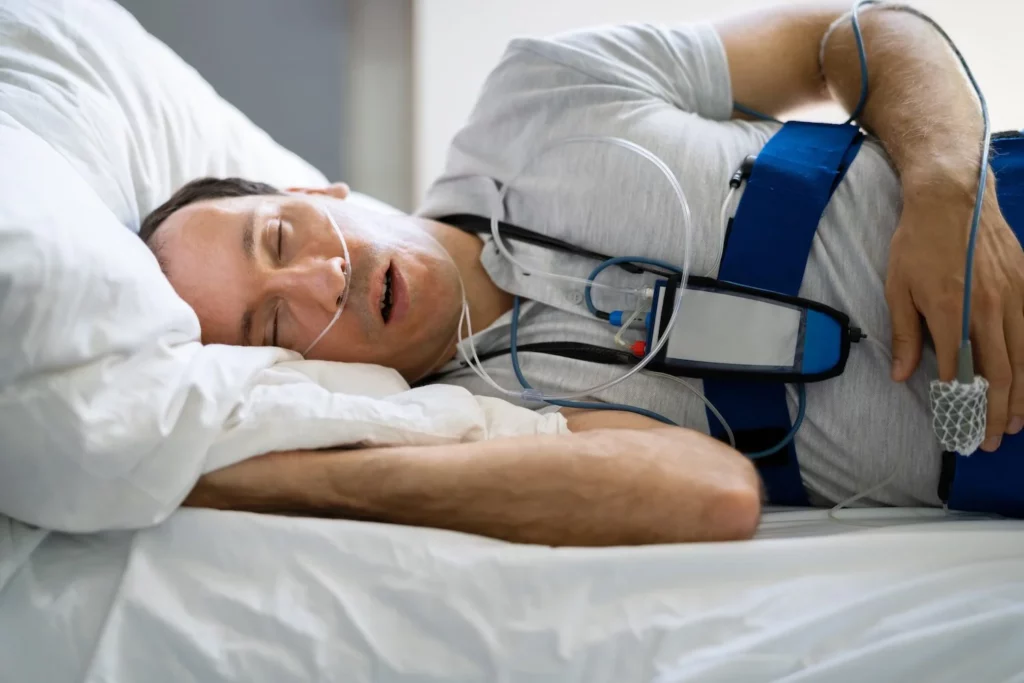
Components of a Sleep Apnea Test
A sleep apnea test typically involves monitoring various aspects of your sleep, including breathing patterns, blood oxygen levels, heart rate, and brain activity. Understanding these components is crucial in diagnosing and treating sleep apnea effectively. In addition to the common parameters monitored during a sleep apnea test, other factors such as body position, snoring intensity, and muscle activity may also be observed to provide a comprehensive assessment of your sleep quality.
Proper diagnosis of sleep apnea is essential as untreated sleep apnea can lead to serious health complications such as hypertension, heart disease, and stroke. By undergoing a sleep apnea test, individuals can take the first step towards managing their condition and improving their overall well-being.
In-Lab Sleep Study
In-lab sleep studies are conducted in specialized sleep centers and require you to spend a night in a sleep laboratory. This controlled environment allows sleep specialists to closely monitor your sleep patterns and behavior throughout the night. In addition to the sensors attached to your body, video recording may also be used to capture any unusual movements or behaviors during sleep, providing further insights into your condition.
The data collected during an in-lab sleep study is meticulously analyzed by trained professionals to identify patterns indicative of sleep apnea. The information gathered helps in determining the appropriate treatment plan tailored to your specific needs, ensuring optimal management of your sleep disorder.
Home Sleep Apnea Test
Home sleep apnea tests offer a more convenient and cost-effective alternative to in-lab sleep studies. Conducted in the comfort of your own home, these tests utilize portable sleep apnea testing equipment that is easy to set up and use. While home sleep apnea tests may not provide as comprehensive data as in-lab studies, they are still valuable in detecting potential sleep apnea symptoms and guiding further evaluation and treatment.
Individuals undergoing a home sleep apnea test are advised to follow instructions carefully to ensure accurate results. It is important to maintain a typical sleep routine during the test period to reflect your usual sleep patterns accurately. Consulting with a healthcare provider is recommended to interpret the test results correctly and determine the most appropriate course of action for managing your sleep apnea.
Factors Influencing the Cost of Sleep Apnea Test
The cost of a sleep apnea test can vary depending on several factors. It is important to consider these factors when budgeting for a sleep apnea test.
When considering the cost of a sleep apnea test, it is essential to delve deeper into the various factors that can influence the final price. Understanding these factors can help individuals make informed decisions about their healthcare expenses.
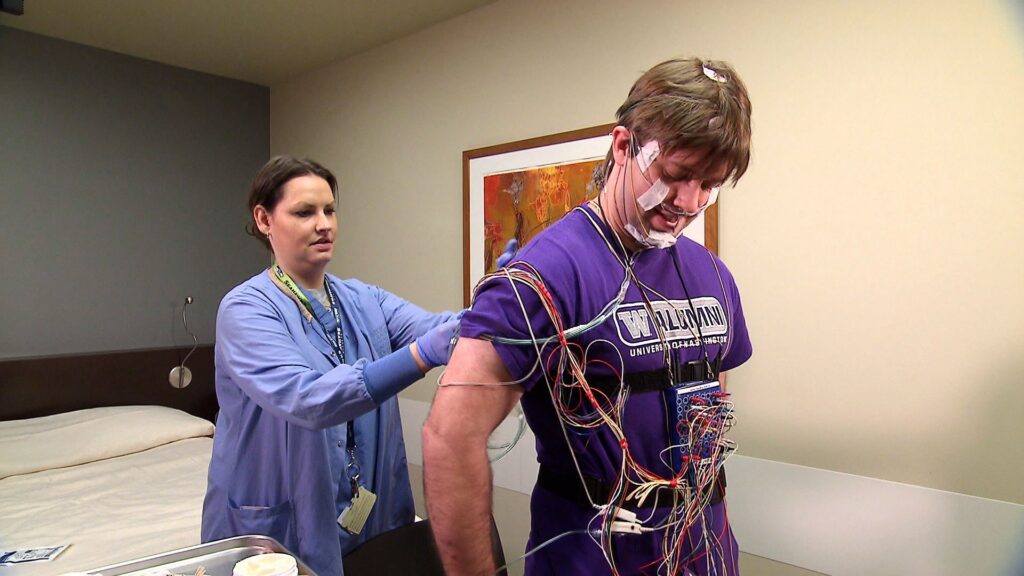
Insurance and Coverage
One major factor that can impact the cost of a sleep apnea test is your insurance coverage. Some health insurance plans may fully or partially cover the cost of sleep apnea testing, while others may require a copayment or have specific requirements for coverage. It is crucial to check with your insurance provider to understand what is covered under your plan.
Insurance coverage for sleep apnea tests can vary widely depending on the provider and the type of plan. Individuals should carefully review their insurance policy to determine the extent of coverage for sleep apnea testing and any out-of-pocket expenses they may incur.
Type of Test and Equipment Used
The type of sleep apnea test you undergo can also influence the cost. In-lab sleep studies conducted in dedicated sleep centers tend to be more expensive than home sleep apnea tests. Additionally, the type of equipment used during the test can affect the overall cost. While home sleep apnea tests generally use less sophisticated equipment, in-lab sleep studies may involve more advanced monitoring devices.
Individuals undergoing a sleep apnea test should inquire about the specific equipment that will be used during the test and how it may impact the overall cost. Understanding the technology involved can provide insight into why certain tests may be priced higher than others.
Location and Facility Fees
The location of the sleep center or clinic where the test is conducted can impact the total cost. Generally, urban areas with higher costs of living tend to have higher facility fees. It is advisable to compare prices from different sleep centers to find one that offers quality services at a reasonable cost.
Factors such as overhead costs, rent, and staffing levels can contribute to the variation in facility fees across different sleep centers. Individuals seeking a sleep apnea test should research multiple facilities in their area to find a balance between cost and quality of care.
Financial Assistance and Affordable Options
While the cost of a sleep apnea test can seem overwhelming, there are financial assistance programs and affordable options available to help individuals manage the expenses.
Health Insurance Plans
If you have health insurance, explore your coverage options for sleep apnea testing. Some plans may cover a significant portion or the full cost of the test. Contact your insurance provider to understand the specific coverage details and any requirements you need to fulfill.
Government Assistance Programs
Depending on your location, there may be government assistance programs available to help individuals with sleep apnea access testing and treatment. These programs are often income-based and can provide financial assistance or subsidies to cover the cost of a sleep apnea test.
Non-Profit Organizations and Charities
Non-profit organizations and charities dedicated to sleep disorders may offer financial assistance or resources for individuals who cannot afford the full cost of a sleep apnea test. These organizations aim to support individuals in need and ensure they have access to necessary diagnostic services.
In conclusion, understanding the cost of a sleep apnea test is crucial when seeking proper diagnosis and treatment. Factors such as insurance coverage, the type of test, location, and available financial assistance options can greatly influence the cost. If you suspect that you have sleep apnea, consult with your healthcare provider, explore your insurance coverage, and inquire about affordable options to ensure you can undergo a sleep apnea test without breaking the bank.

